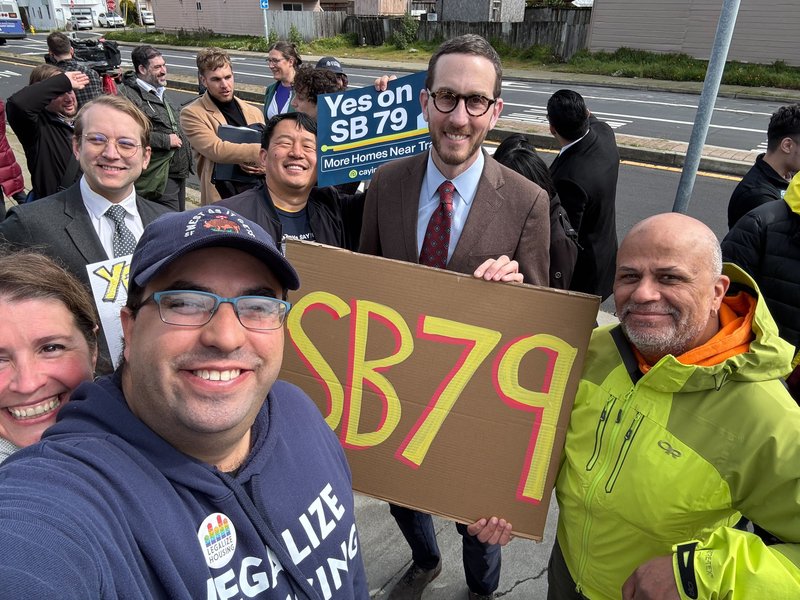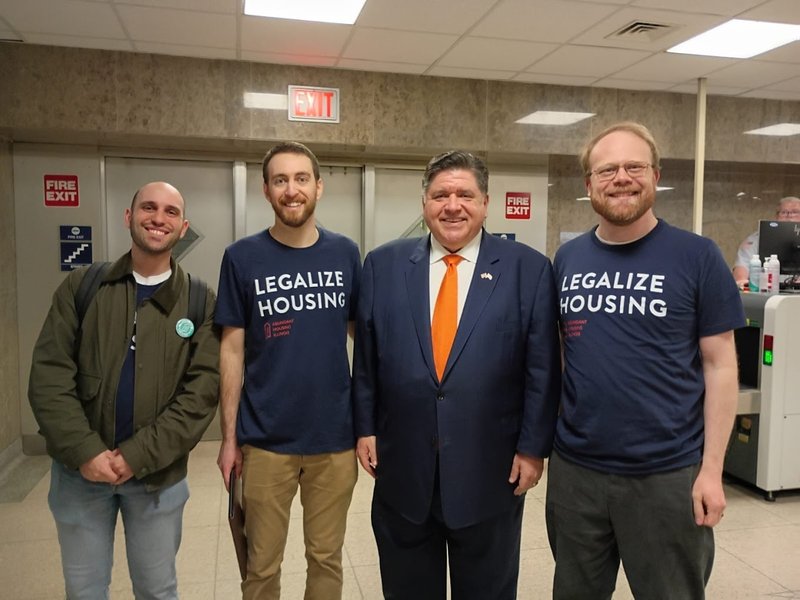
Our national housing shortage is driving up costs, displacing families, and eroding economic mobility. Data shows that housing is now one of the top concerns for voters across the country. The question is clear: what does real housing leadership look like, and how can we tell if our elected officials are delivering?
Housing Is Top of Mind for Voters
Housing isn’t just a “niche” policy debate anymore; it’s at the center of family budgets, community stability, and climate resilience. Data shows that affordability is among the top issues for Gen Z and Millennials, but it also affects older homeowners, renters, and unhoused people alike. Even though housing policy is usually decided locally, the affordability crunch has made it a national worry. A recent Gallup survey found that housing was one of the biggest financial concerns for Americans, second only to inflation. And for young voters, it’s even more pressing; Harvard’s spring 2024 youth poll showed housing ranked right behind inflation and health care as a top issue.
When politicians step up on housing, they’re not only improving lives, they’re responding to what voters already care about most. And that includes you. Every renter, homeowner, and future homebuyer has a stake in affordability. By paying attention to whether your leaders are YIMBYs, supporting more homes, smarter zoning, and inclusive growth, you have the power to make housing more affordable in your community.
What Makes a Pro-Housing Leader?
Real housing leadership isn’t about making statements. It’s about concrete actions that lower costs, expand opportunity, and help people find a stable place to live. Here are five markers of a true pro-housing legislator.
1. Champion Bold Legislation
Leaders should write or sponsor bills that make it easier to build homes of all kinds, which could mean legalizing duplexes, expanding access to Accessory Dwelling Units (ADUs) like backyard cottages or garage conversions, or upholding the Builder’s Remedy, a state law that allows new housing to move forward when cities fail to plan for enough homes. These kinds of reforms make it possible to add homes in existing neighborhoods and hold local governments accountable when they stand in the way of new construction.
2. Vote Consistently for Housing
Housing reform often dies in the details. A pro-housing legislator has to show up every time to vote for bills that expand supply, protect renters, and prevent displacement. In Minneapolis, consistent council votes enabled the city to eliminate single-family-only zoning and unlock thousands of new homes. A recent evaluation found that under their 2040 Plan, rents were 17.5 to 34 percent lower than they would have been without those zoning reforms. This is clear evidence that pro-housing leadership and zoning reform can help ease inflation by keeping living costs under control.
3. Enforce Housing Laws
It’s not enough for leaders to pass good housing laws; they have to make sure those laws are followed. Too often, cities try to sidestep or delay pro-housing legislation due to local NIMBY pressure, leaving thousands of potential homes stuck on paper instead of being built.
YIMBY Law’s National Implementation Guide underscores that enforcement is the real test of leadership. Strong laws like California’s Housing Accountability Act, or SB 35, worked because state and local leaders insisted on compliance.
Elected officials who champion enforcement help turn policy promises into real homes. That means ensuring transparency in how housing goals are tracked, publicly holding cities accountable for meeting them, and standing firm when local interests try to water down progress. Our Implementation Guide even recommends that legislators back stronger reporting systems and, when necessary, support legal action to ensure fair and consistent application of housing laws.
And here’s where you come in: by paying attention to whether your leaders are enforcing housing laws and standing up to obstruction, you can help make affordability a reality in your own community. If your representatives are YIMBYs, meaning they push for both good laws and real enforcement, that’s when real change happens.

4. Fund Affordable Housing
Market-rate supply alone won’t solve the crisis. True housing leadership also means investing in deeply affordable units, socially supportive housing, and infrastructure that makes communities livable. In Richmond, for instance, Mayor Levar Stoney pushed forward a $50 million municipal investment that was matched by the Local Initiatives Support Corporation (LISC) to create a $100 million housing fund for low-income development. In Virginia’s state budget, a $150 million infusion went to the Virginia Housing Trust Fund, showing what state leadership can do. Meanwhile, federal proposals like the Yes in God’s Backyard (YIGBY) Act, supported by Senator Mark Warner, offer models for using institutional land and grants to build affordable housing.
If leaders don’t fund the homes we need, even the best laws will stall. YOU have influence here: when you see your local or state officials voting for budgets, offer public support for those who allocate real dollars to housing. That’s how intentions turn into homes.
5. Stand Up to NIMBY Politics
Housing opponents often cloak their resistance in language about “neighborhood character” or “overdevelopment.” Leaders who resist these arguments and explain why more homes benefit everyone set the tone for real progress. Research even shows that politicians who stand firm on housing reforms can be rewarded at the ballot box.
Change Is Possible
Our national housing shortage is creating consequences that feel overwhelming for most families. The good news? Housing leadership works, and we’re seeing proof across the country.
In Berkeley, local leaders voted unanimously to end single-family zoning, opening the door for more multi-unit housing in one of the nation’s most expensive cities. In Minneapolis, the city’s landmark zoning reform is already showing results: housing supply continues to rise, and rent growth has slowed dramatically compared to peer cities. In places like Austin, where the city scrapped parking minimums altogether, and Denver, which just abolished parking requirements across new development, advocates have helped free up space (and reduce costs) to make room for more homes.
These changes didn’t happen by accident; they were driven by people and policymakers willing to say “yes” to more homes, even when it wasn’t easy. Each local victory builds momentum for a national shift toward abundance and affordability.

How You Can Help
When you support pro-housing policies and amplify leaders who make them happen, you help prove that real change is possible. Every vote, every meeting, every comment in favor of housing helps transform good ideas into new homes and thriving neighborhoods.
Real change starts downstream. Most of the decisions that shape housing affordability, like zoning, permitting, and land use, happen at the local level. Your city council, your county supervisors, your state legislators, these are the people who can unlock (or block) new homes in your community. That’s why local elections matter so much more than most voters realize.
When you know what pro-housing leadership looks like, you have the power to demand it. Support candidates who vote to expand housing opportunities, who enforce the rules fairly, and who stand up to NIMBY pressure. You have the power to directly impact what kinds of leaders will make decisions that will impact your neighborhood for years to come.
If you want to help get pro-housing leaders elected and stay connected to the work happening nationwide, sign up for YIMBY Action’s email list. You’ll get updates on how housing policies are changing across the country, opportunities to take action, and ways to connect with a local chapter near you. Together, we can make housing affordability a top priority in every election and every community.
